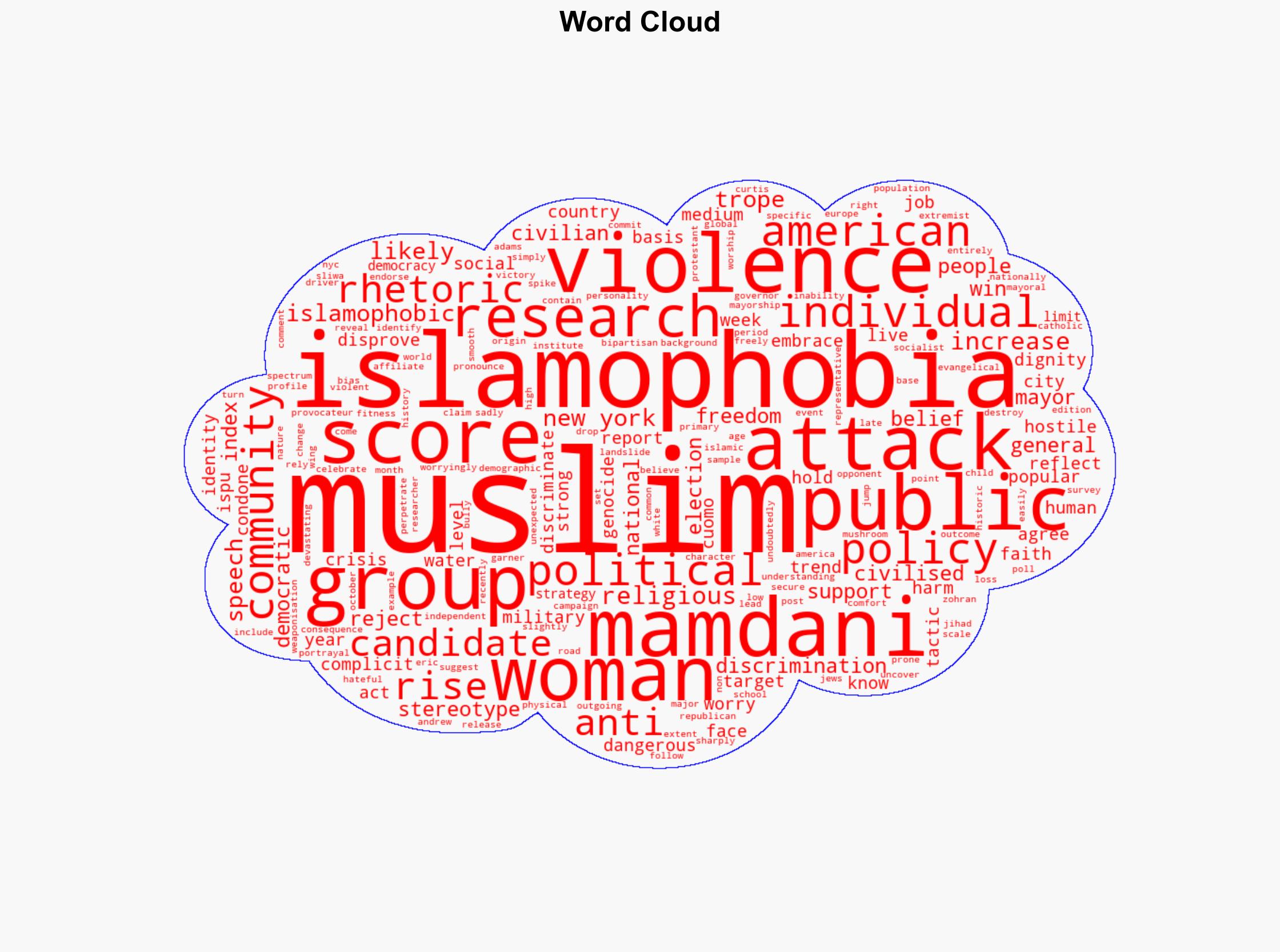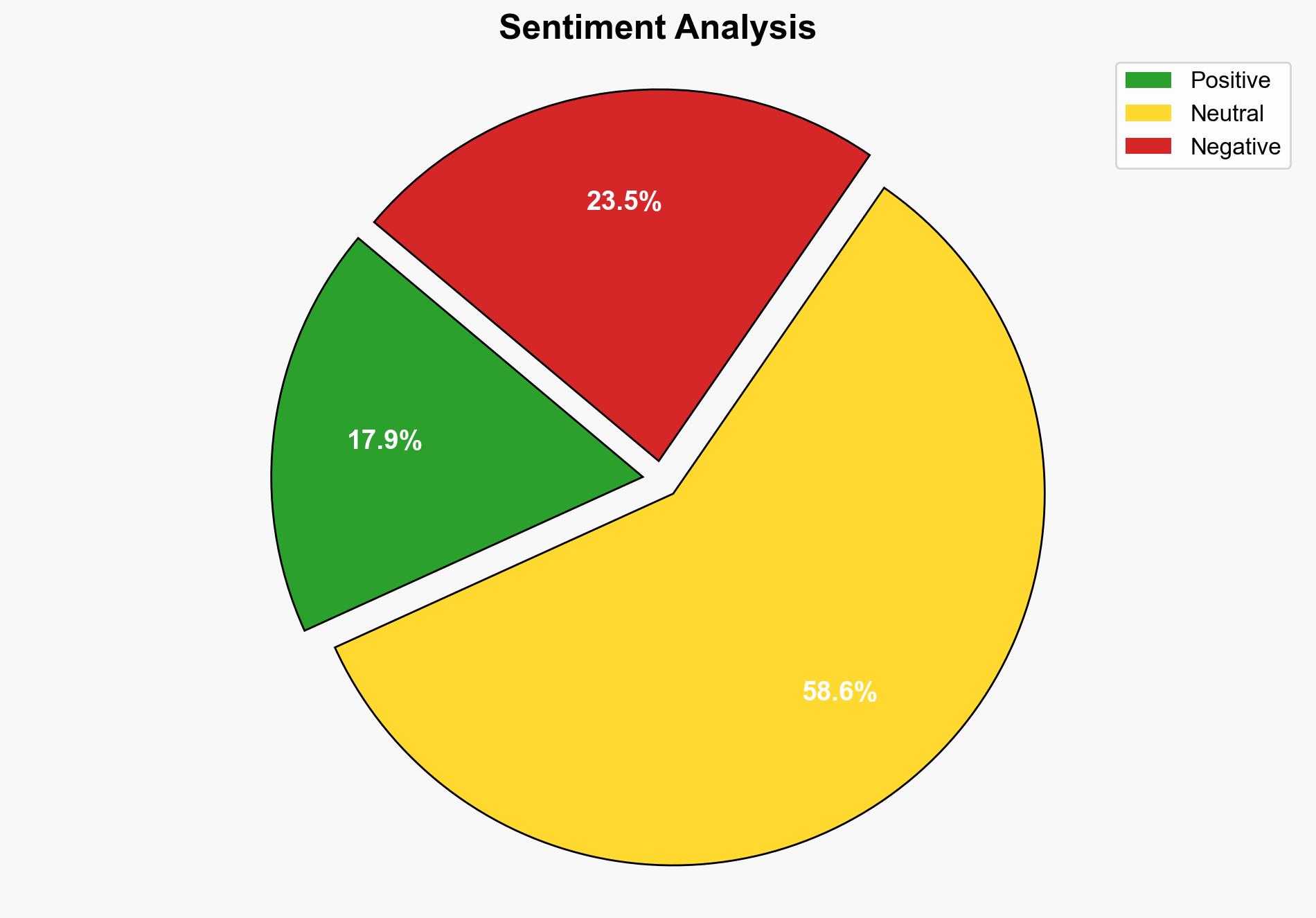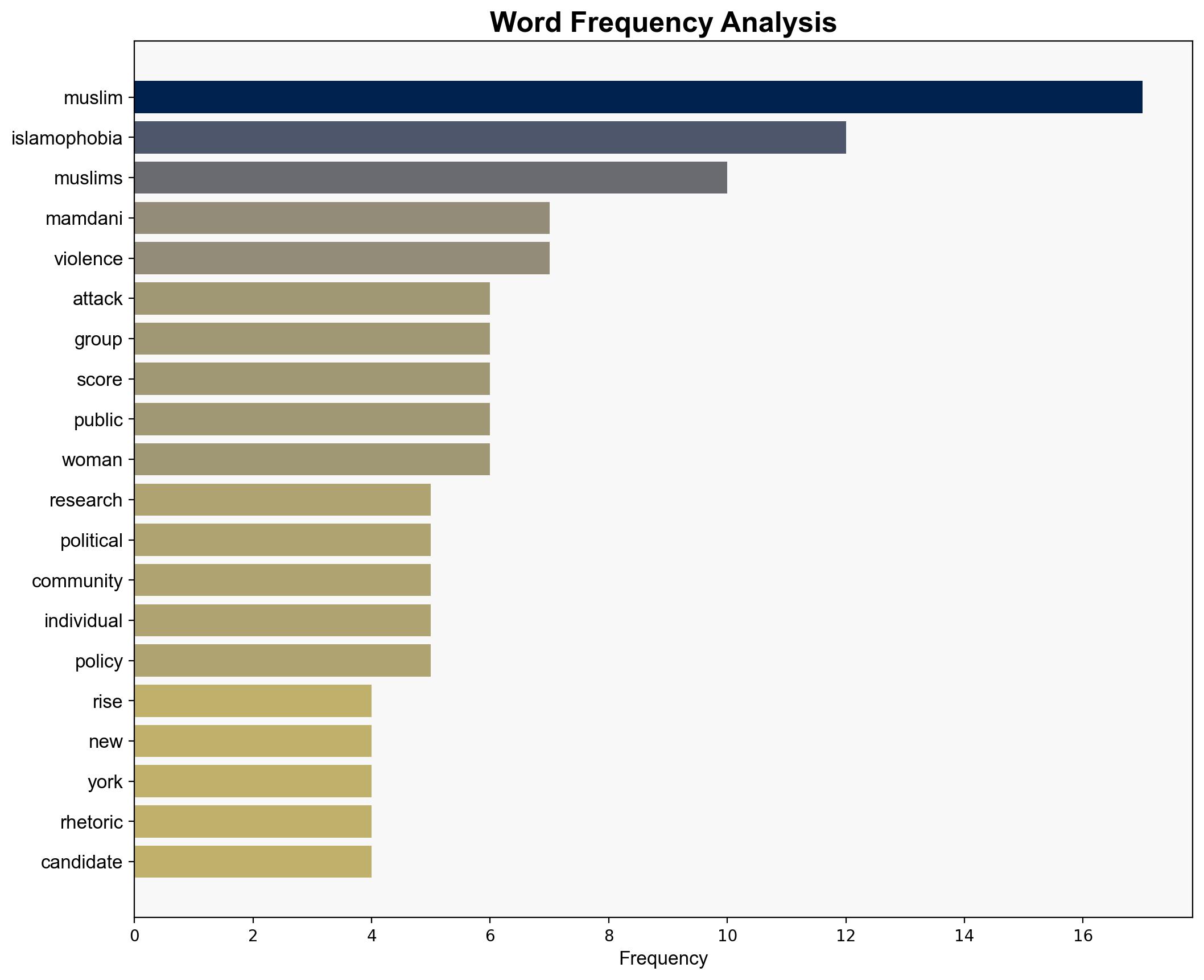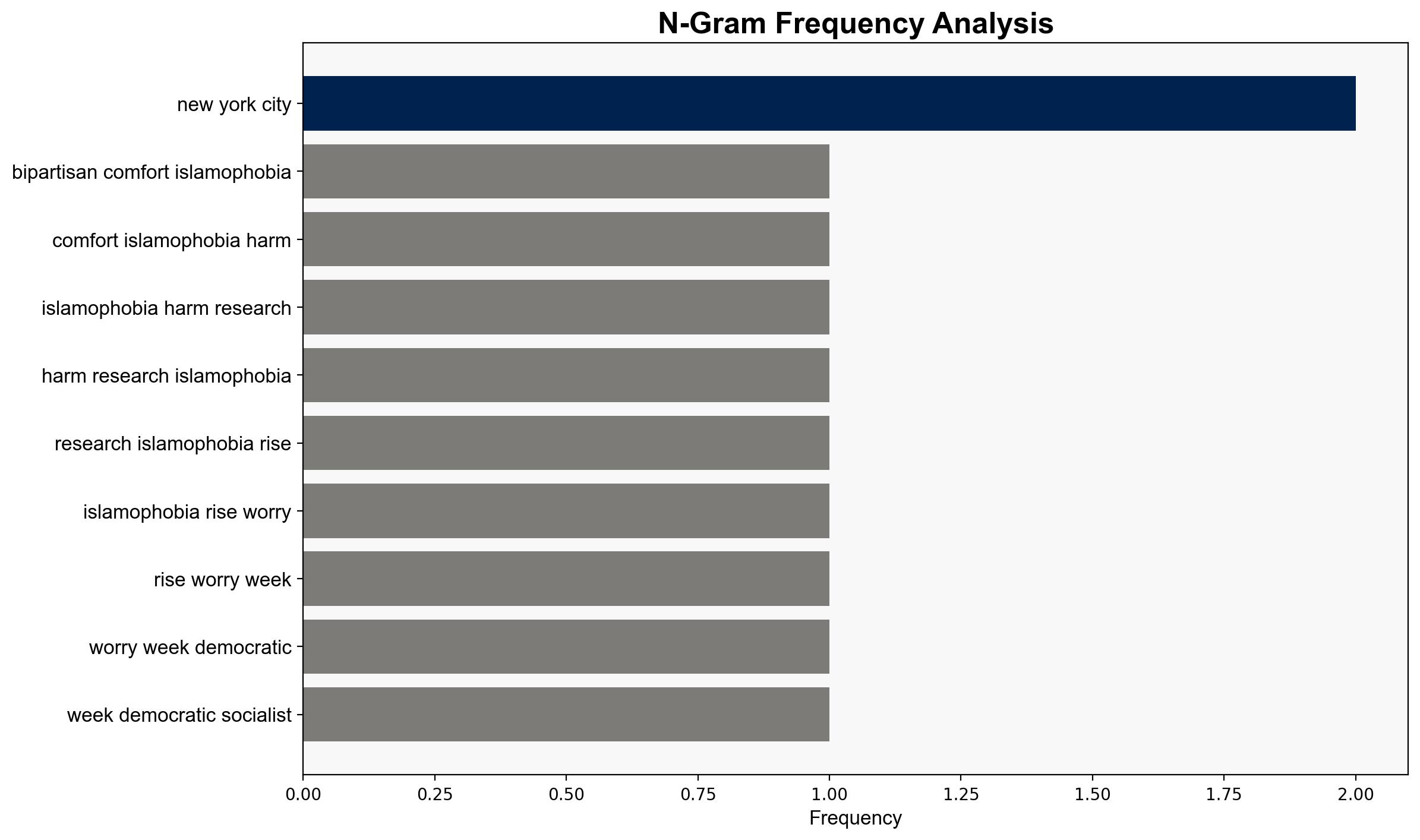The bipartisan comfort with Islamophobia harms us all – Al Jazeera English
Published on: 2025-11-08
Intelligence Report: The bipartisan comfort with Islamophobia harms us all – Al Jazeera English
1. BLUF (Bottom Line Up Front)
The strategic judgment indicates a moderate confidence level that the rise in Islamophobia is being politically weaponized across the spectrum, exacerbating societal divisions and potentially leading to increased discrimination and violence against Muslim communities. The most supported hypothesis suggests that bipartisan political rhetoric is a significant driver of this trend. Recommended action includes enhancing community engagement initiatives and promoting inclusive narratives to counteract divisive rhetoric.
2. Competing Hypotheses
1. **Hypothesis A**: Bipartisan political rhetoric is a primary driver of rising Islamophobia, with both major political parties using anti-Muslim sentiment to galvanize support, leading to increased societal acceptance of Islamophobic attitudes.
2. **Hypothesis B**: The rise in Islamophobia is primarily driven by external factors, such as global geopolitical tensions and media portrayal of Muslims, with political rhetoric playing a secondary role.
Using ACH 2.0, Hypothesis A is better supported by the evidence, as the source text highlights specific instances of political figures using Islamophobic rhetoric to gain support, suggesting a deliberate political strategy.
3. Key Assumptions and Red Flags
– **Assumptions**: Hypothesis A assumes that political rhetoric has a direct and significant impact on public attitudes. Hypothesis B assumes that external factors are more influential than domestic political discourse.
– **Red Flags**: Potential bias in the source material, as it may emphasize political motivations over other factors. Lack of quantitative data linking political rhetoric to specific increases in Islamophobia.
– **Blind Spots**: The analysis may overlook the role of social media algorithms in amplifying Islamophobic content.
4. Implications and Strategic Risks
The rise in Islamophobia could lead to increased social fragmentation, discrimination, and potential radicalization within marginalized communities. Economic impacts may include reduced workforce participation and increased costs related to security and community support. Geopolitically, this trend could strain international relations with Muslim-majority countries and complicate counter-terrorism efforts.
5. Recommendations and Outlook
- **Mitigation**: Implement community outreach programs to foster dialogue and understanding between diverse groups. Encourage political leaders to adopt inclusive rhetoric.
- **Best Case Scenario**: Successful community engagement reduces Islamophobic attitudes, leading to a more cohesive society.
- **Worst Case Scenario**: Continued political exploitation of Islamophobia results in increased violence and societal division.
- **Most Likely Scenario**: Gradual increase in Islamophobic incidents with sporadic political interventions to address the issue.
6. Key Individuals and Entities
– Zohran Mamdani
– Curtis Sliwa
– Andrew Cuomo
– Eric Adams
7. Thematic Tags
national security threats, societal cohesion, political rhetoric, community engagement





